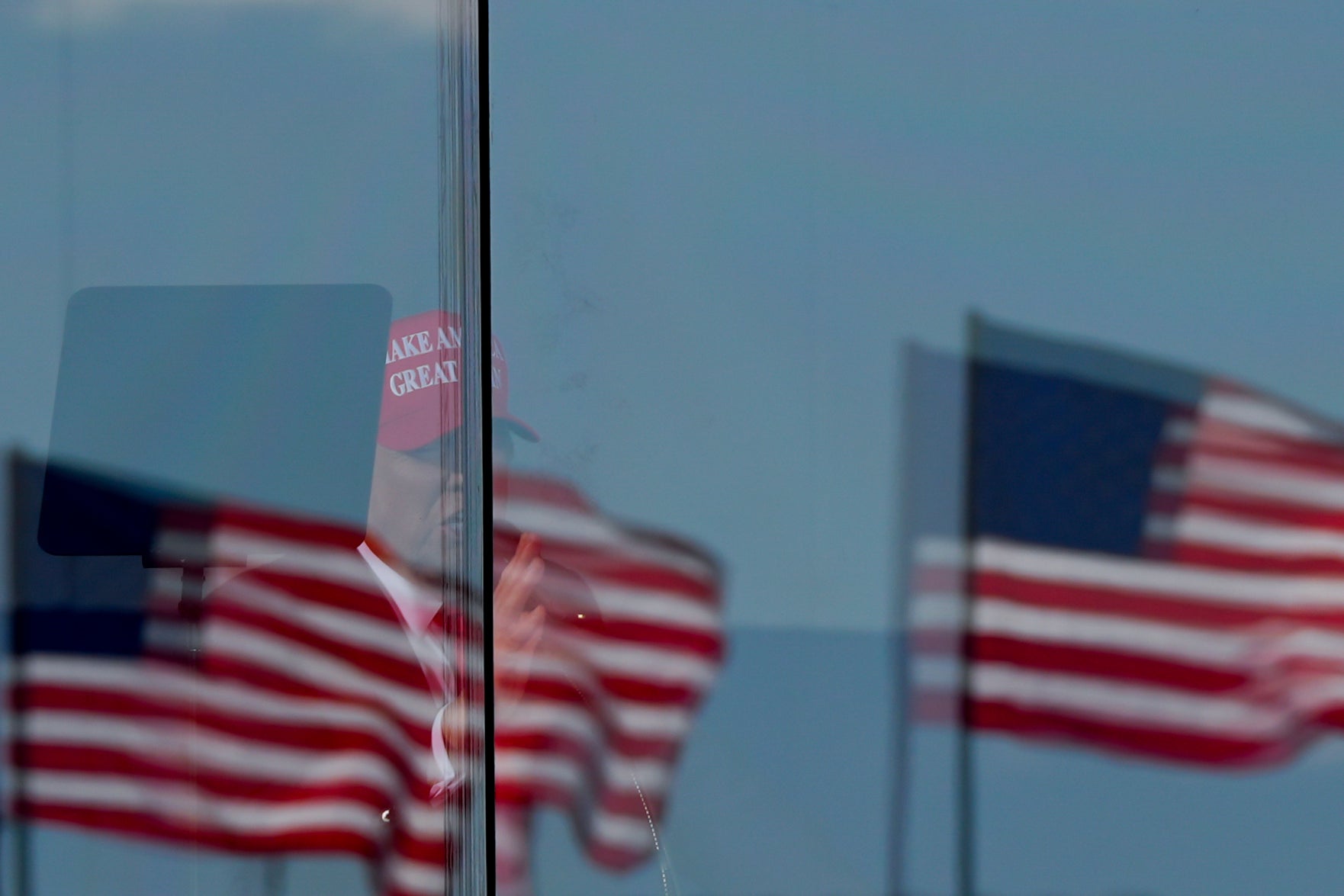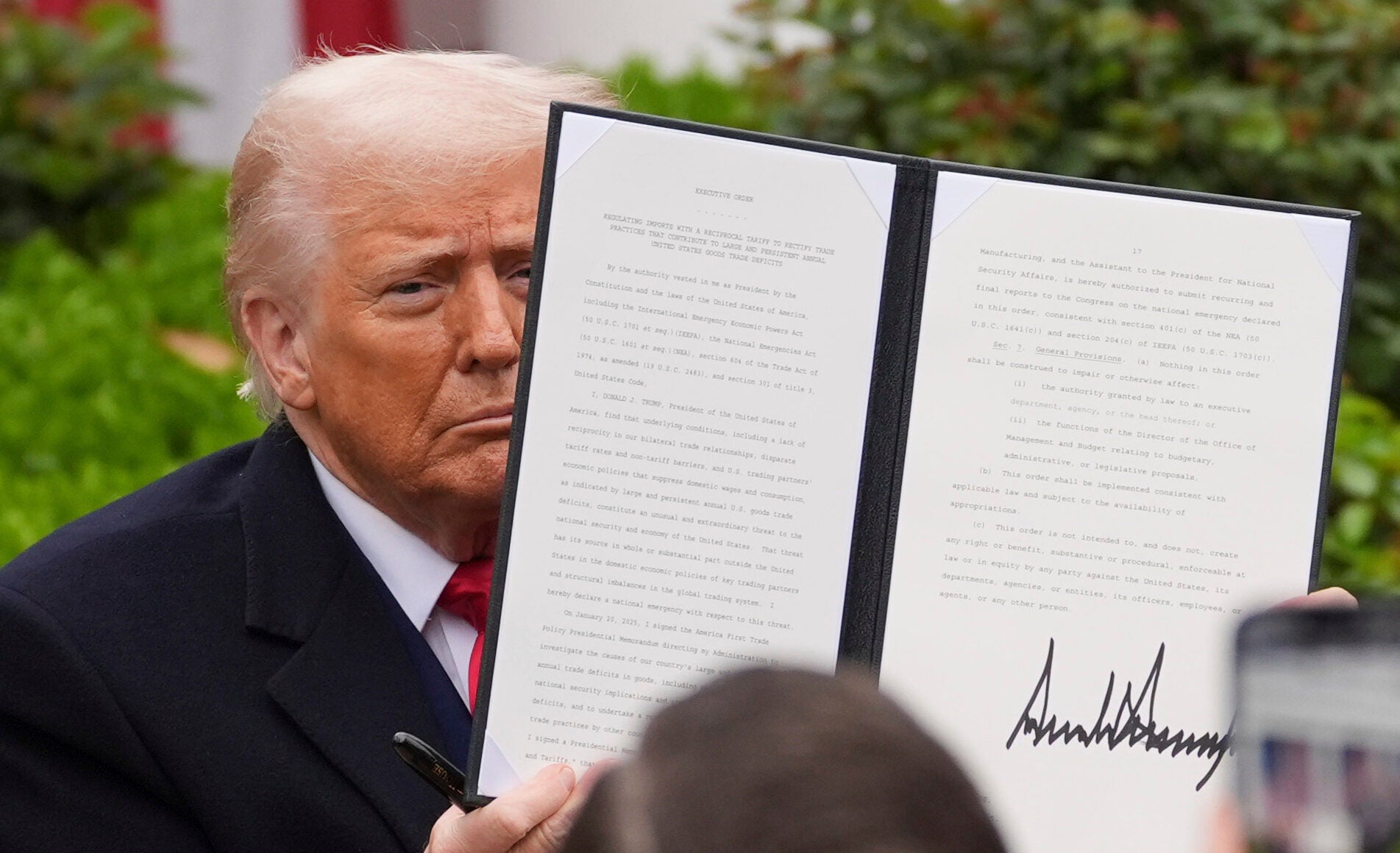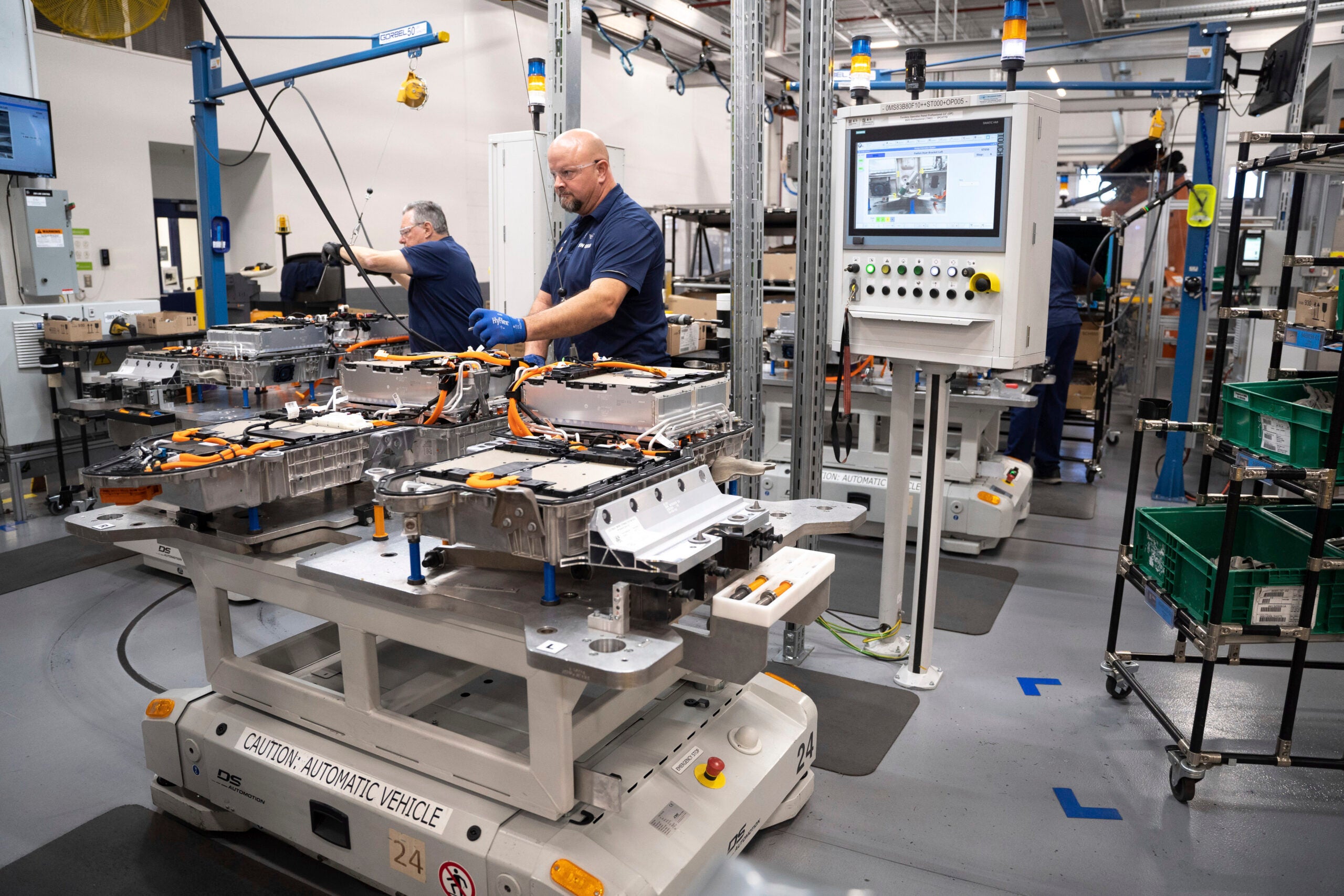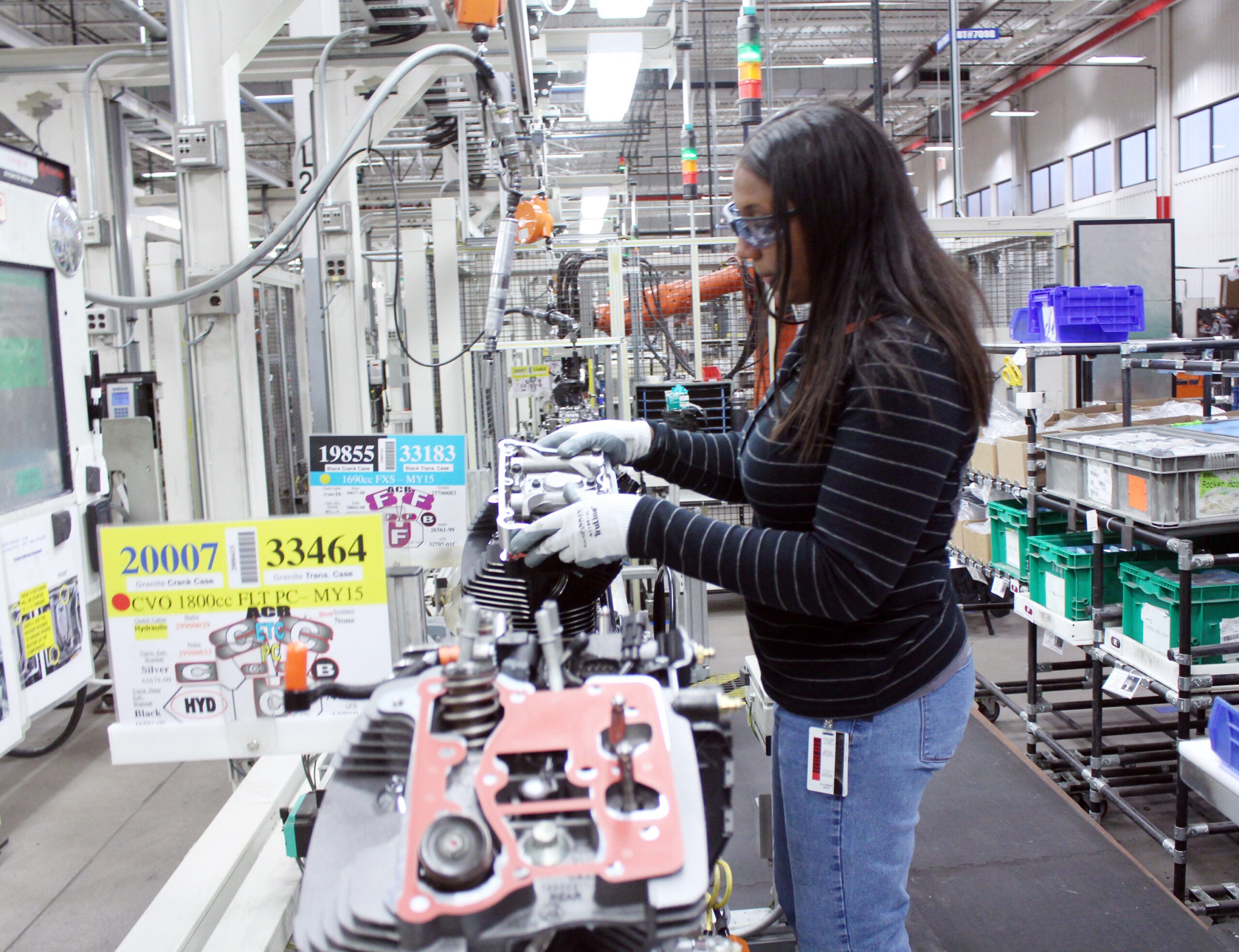As President Donald Trump’s sweeping tariffs take effect this week, Wisconsin leaders are reacting with tempered optimism, concern or outright castigation.
In an appearance on NPR’s “Morning Edition,” Republican U.S. Sen. Ron Johnson, a staunch Trump ally, said he thinks the tariffs are a “bold move” that could be a double-edged sword, while Democratic Sen. Tammy Baldwin said in a statement that they’ll launch a disastrous trade war.
Wisconsin’s congressional delegation likewise had mixed reactions to the arrival of the import taxes, including a 10 percent baseline tax that went into effect late Wednesday in Wisconsin, higher taxes on certain goods like foreign cars, and further taxes to take effect later this week.
Stay informed on the latest news
Sign up for WPR’s email newsletter.
Johnson said Trump campaigned on promises of tariffs and argued that it’s an attempt to level the playing field for American manufacturers engaged in global trade.
“I think it’s a reasonably high risk,” he said. “[Trump] will either reap the rewards or suffer the consequences.”
Baldwin, his Democratic counterpart, said Trump was going against promises to lower costs for consumers.
“Donald Trump’s trade war is set to jack up the price of virtually everything from the grocery store and gas pump to buying a home and car,” she said in a statement. “I agree that we need to address trade cheats like China, bring back Made in America manufacturing and level the playing field for workers, but Donald Trump’s reckless plan is not going to do that.”
Perhaps unsurprisingly, Johnson and Baldwin were on opposite sides of a vote in the Senate to undo tariffs on Canada. Four Republicans joined all Democrats in passing a rebuke to the taxes, but that bill is not expected to succeed in the GOP-held House.
Wisconsin’s House members are likewise divided by party. Democratic House members argued on social media that the tariffs will cost people their jobs and increase prices, and Republicans called the measures “reciprocal” and an effort to promote American production.
“Tariffs actually come down when countries say, ‘OK, we’re not going to fight this tariff battle,’” said Rep. Tom Tiffany, R- Hazelhurst, in a television interview. “But we clearly have not had fair trade here in America.”
On social media, Rep. Gwen Moore, D-Milwaukee, called the tariffs “harebrained flip-flopping economic policies.”
“He is breaking his campaign promises and leaving working Americans to pay the price,” she wrote.
Gov. Tony Evers, who previously warned that tariffs on allies like Canada and Mexico would harm Wisconsin’s dairy industry, wrote on social media that the latest tariffs are a “disaster.”
The tariffs also took effect as Wisconsin Economic Development Corporation Secretary Missy Hughes was in Germany on a trade mission.
According to the WEDC, Germany is a top-10 trade partner with Wisconsin. In an interview with WPR’s “Wisconsin Today,” Hughes said news of the tariffs had caused uncertainty and confusion even before they went into effect.
“There’s a lot of feeling that we had a good relationship, and we’ve had for many, many years [an] excellent relationship across Europe and real confusion about why things have changed,” she said. “For businesses and for our businesses, it brings unpredictability. It brings instability, and that’s frustrating.”
Trump has said tariffs are a first step toward sparking a boom in American manufacturing by disrupting reliance on foreign goods.
Hughes said some Wisconsin exporters are concerned about immediate disruption to existing supply chains.
“That just adds instability and risk into their businesses,” she said. “This has had a real chilling effect on some of those prospects.”
Trump’s tariffs are calculated differently depending on the exporting country and include a 34 percent tax on goods from China, 20 percent on the European Union and 24 percent on Japan. Some of these are levied on top of existing tariffs, and some specific goods will be taxed additionally.
The latest tariffs are calculated based on the amount of U.S. goods the affected country imports — so their taxes are higher if they export more than they import. Trump has argued that this will encourage American exports.
Immediately after tariffs increased, global markets fell, and world leaders warned of global economic fallout.
Wisconsin Public Radio, © Copyright 2025, Board of Regents of the University of Wisconsin System and Wisconsin Educational Communications Board.





